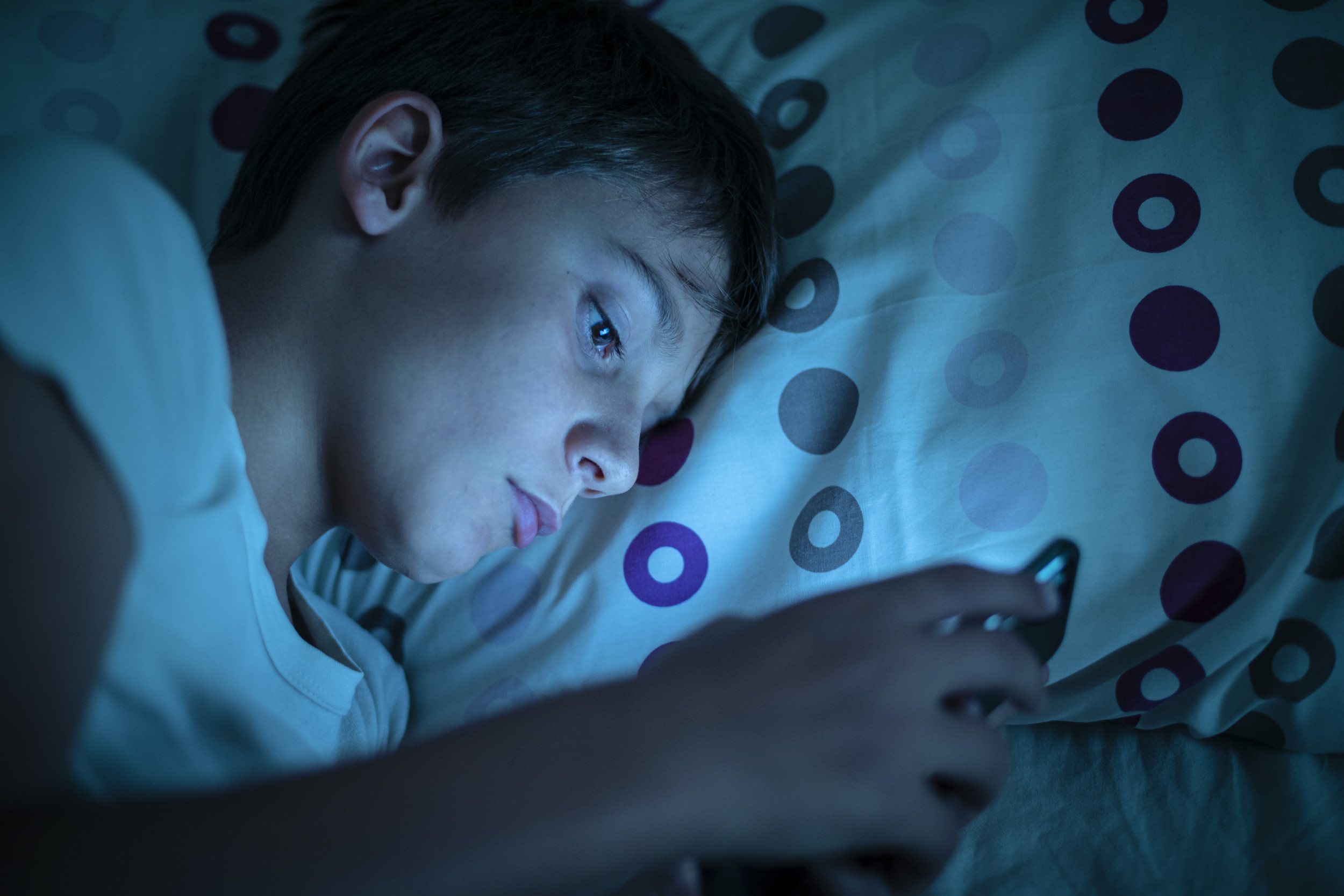
KIDS: SCREEN TIME BEFORE BED AFFECTS SLEEP DIFFERENTLY THAN THOUGHT
Screen time affects children most if it is active and in bed, rather than just before bed, a recent study has suggested.
Scientists at the University of Otago in New Zealand tracked the screen time and sleep habits of 85 children aged 11 to 14 for one week using body cameras, cameras in their bedrooms, and sleep monitoring devices.
They found that using screens in the two hours before bed was not associated with most measures of sleep health, but the type of screen time and where it occurred were.
"It quickly became obvious that adolescents spend a lot of their screen time while in bed," said lead author Dr. Bradley Brosnan in a statement.
"Our most interesting findings were that this screen time before they got into bed had little impact on sleep that night.
"However, screen time once in bed did impair their sleep—it stopped them from going to sleep for about half an hour, and reduced the amount of sleep they got that night."
Out of all the participants in the study, 99 percent used screens in the two hours before bed. More than half used screens once in bed, and a third used them after trying to go to sleep for the night.
The type of screen time that had the most significant impact on sleep was screen time that took place in bed, interactive screen time—such as gaming—or screen time when the children used multiple screens at once, for instance, watching a film while playing on a gaming device.
"Every additional 10 minutes of this type of screen time reduced the amount of sleep they got that night by almost the same amount," said Brosnan.
"Our findings suggest that the impact of screen time on sleep is primarily through time displacement delaying sleep onset rather than any direct effects of blue light or interactive engagement as we didn't find associations with sleep latency and wakefulness during the sleep period."
The U.S. Centers for Disease Control and Prevention (CDC) recommends that children avoid screens an hour before bedtime. In New Zealand, the equivalent official recommendation is for two hours.
However, the study authors said this recommendation should be updated to align with modern life.
"We need to revisit sleep guidelines, so they fit the world we live in, and actually make sense—the current ones aren't achievable or appropriate for how we live," said Brosnan.
Do you have a tip on a food story that Newsweek should be covering? Is there a nutrition concern that's worrying you? Let us know via [email protected]. We can ask experts for advice, and your story could be featured in Newsweek.
Reference
Brosnan, B., Haszard, J. J., Meredith-Jones, K. A., Wickham, S., Galland, B. C., & Taylor, R. W. (2024). Screen Use at Bedtime and Sleep Duration and Quality Among Youths. JAMA Pediatrics. https://doi.org/10.1001/jamapediatrics.2024.2914
2024-09-03T15:45:37Z dg43tfdfdgfd